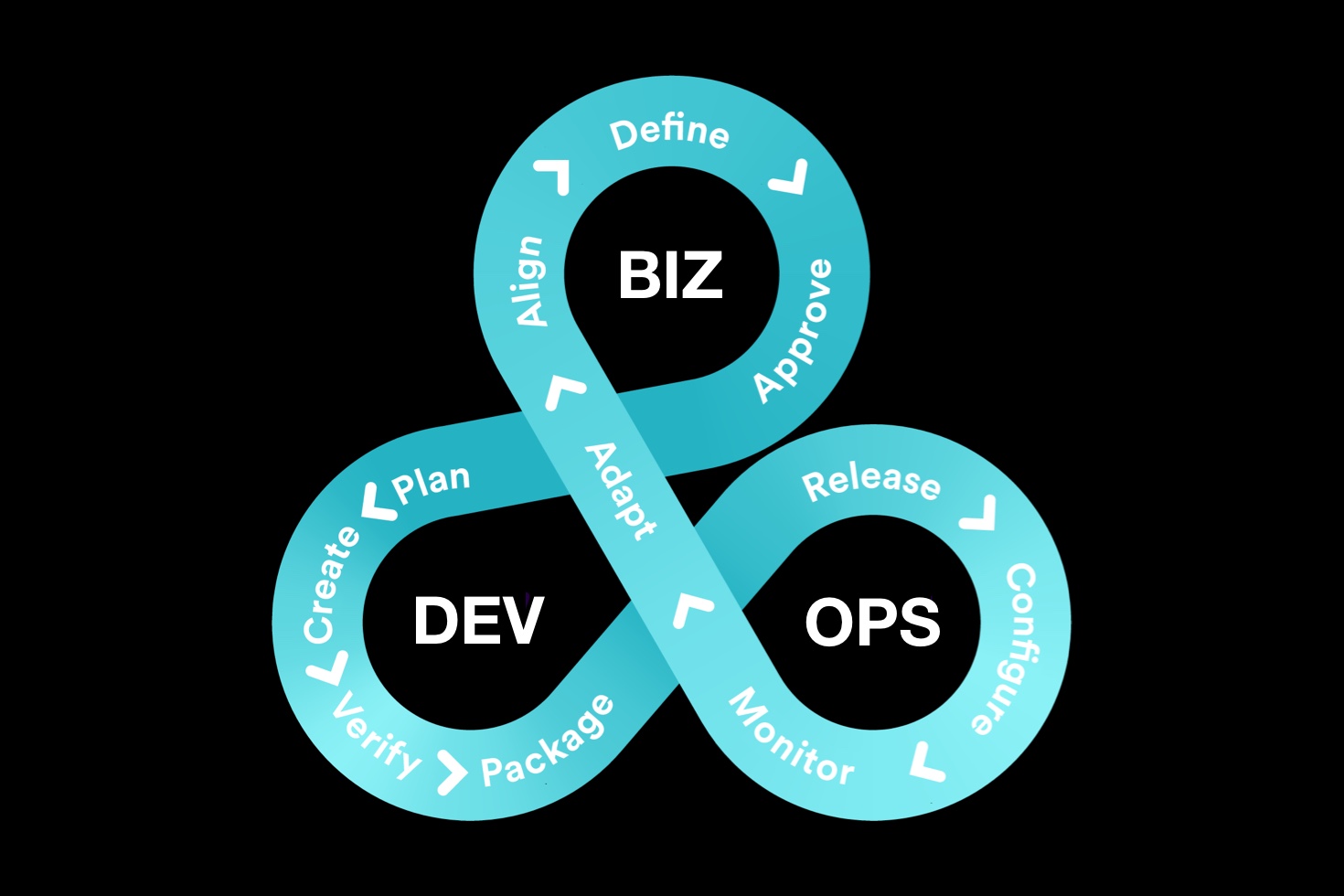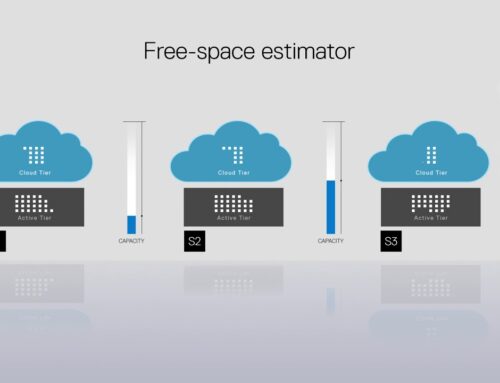Traditionally, business and IT roles within an organization have been perceived as distinct entities, each with its own set of priorities, goals, and working methodologies. Business teams are typically tasked with understanding market trends, identifying opportunities, setting strategic goals, and driving revenues. On the other hand, the IT department is usually responsible for maintaining infrastructure, ensuring system security, and developing or implementing technologies that support the business’s operations and objectives.
However, in the digital era we live in, this demarcation is blurring. The rise of software and digital services has catalyzed a shift in how businesses operate, making technology an integral part of not only supporting business functions but driving strategic initiatives too.
This shift has given rise to a new approach known as BizDevOps – an extension of the widely adopted DevOps philosophy. BizDevOps, a blend of business (Biz), development (Dev), and operations (Ops), encourages a seamless collaboration between the business, development, and operations teams. It aims to ensure that the technology developed aligns perfectly with business goals, thus delivering more value to the customers and the organization.
When businesses and IT align their goals and work in harmony through BizDevOps, a multitude of benefits can be reaped. From improved communication and collaboration, faster delivery times, higher product quality, to greater efficiency, the perks are far-reaching. Over the course of this article, we will explore the concept of BizDevOps in more depth and examine the manifold benefits that can come from aligning business and IT in your organization.
What is BizDevOps?
BizDevOps, as the name suggests, is a merger of three key areas of an organization: business (Biz), development (Dev), and operations (Ops). But what does this mean in practice?
At its core, BizDevOps is about fostering a culture of collaboration and shared responsibility between these three critical divisions. It seeks to break down the silos that traditionally separate them, allowing for a more streamlined workflow where all parties are on the same page. The ultimate goal is to ensure that the software development cycle is not only efficient but also directly aligned with the business’s objectives and customer needs.
While BizDevOps shares similarities with the traditional DevOps model, the two differ in a few key areas. DevOps primarily focuses on bringing together the development and operations teams to enable continuous integration and delivery. BizDevOps, however, takes this a step further by incorporating the business side of the organization into this collaboration. This results in a more holistic approach where business requirements directly influence the development and operations processes.
The BizDevOps approach hinges on regular and open communication among the business, development, and operations teams. This process begins with the business team clearly outlining their strategic goals and customer requirements. The development team then designs and implements technology solutions that align with these goals, while the operations team ensures the stable deployment and running of these solutions. All the while, feedback loops are maintained to keep all teams abreast of any changes, improvements, or issues that might occur.
The Benefits of BizDevOps
- Faster Delivery Times: The integration of business, development, and operations within a single, cohesive framework accelerates the development process. When everyone understands the business goals from the get-go, the time usually spent on clarifying requirements, modifying designs, and rectifying misunderstandings is significantly reduced. Continuous integration and deployment, a cornerstone of the DevOps philosophy, further contribute to speedier delivery. The outcome? You get your products and updates to market faster, giving you a competitive edge.
- Better Alignment with Business Goals: The power of BizDevOps lies in its ability to align IT projects directly with business objectives. Because business teams are involved from the start, developers and operations personnel understand exactly what is needed from a business perspective. This minimizes the chances of projects veering off course, ensuring that the final product or service aligns closely with what the business needs to achieve its strategic objectives.
- Improved Product Quality: The continuous feedback loops and the close collaboration inherent in the BizDevOps model facilitate better visibility and communication across teams. This results in fewer misunderstandings and fewer mistakes. Moreover, because issues can be identified and rectified quickly, the overall quality of the end product is greatly enhanced.
- Increased Efficiency: The elimination of silos means that the entire process, from concept to delivery, becomes more efficient. Communication becomes smoother, decisions are made faster, and the chance of duplication of effort is significantly reduced. This not only saves time but also reduces costs, contributing to a leaner and more cost-effective operation.
The benefits of BizDevOps extend beyond these four key areas. Promoting a culture of collaboration and shared responsibility, BizDevOps also improves team morale and job satisfaction, which in turn can boost productivity and reduce staff turnover. In short, BizDevOps is not just a strategy for improving software development—it’s a strategy for improving business outcomes.
The Importance of Business and IT Alignment
1. Common Challenges When Business and IT are Not Aligned
When business and IT teams operate in silos, it often leads to several complications. Misunderstandings about business objectives and technology capabilities, misalignment of priorities, lack of effective communication, and wasted resources are just some of the issues that organizations commonly face. For instance, IT teams might end up working on projects that aren’t critical to the business strategy or build features that don’t meet the actual needs of end-users, resulting in inefficiencies and missed opportunities.
2. How BizDevOps Addresses These Challenges
BizDevOps offers a potent solution to these challenges by integrating business stakeholders directly into the DevOps process. This business-oriented approach to DevOps ensures a shared understanding of goals, expectations, and capabilities right from the outset. By breaking down the silos between business and IT, BizDevOps promotes effective communication and collaboration.
This approach enables the business to articulate its needs clearly and IT to provide timely feedback about what is technically feasible, leading to a well-coordinated action plan. Moreover, by involving business stakeholders in the continuous cycle of development and feedback, BizDevOps ensures that the developed products or features align perfectly with business needs and user expectations. The result is a more streamlined, efficient operation that delivers value more quickly and more accurately, helping the organization to achieve its strategic goals.
In conclusion, It’s clear that businesses involving IT are rapidly evolving. To stay competitive in this industry, businesses need to adapt and innovate continuously. The adoption of BizDevOps offers a practical and potent way to achieve this, enabling organizations to leverage the strengths of both business acumen and technological prowess effectively. By ensuring a symbiotic relationship between business and IT, companies can make informed, data-driven decisions that propel them towards their goals. BizDevOps is not just a trend; it’s an investment in the future. So, as we look ahead, let’s embrace BizDevOps – for better alignment, improved outcomes, and a more prosperous future.












